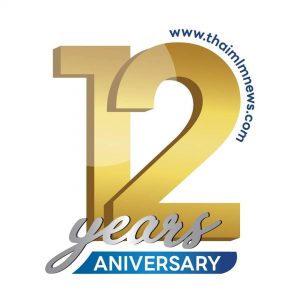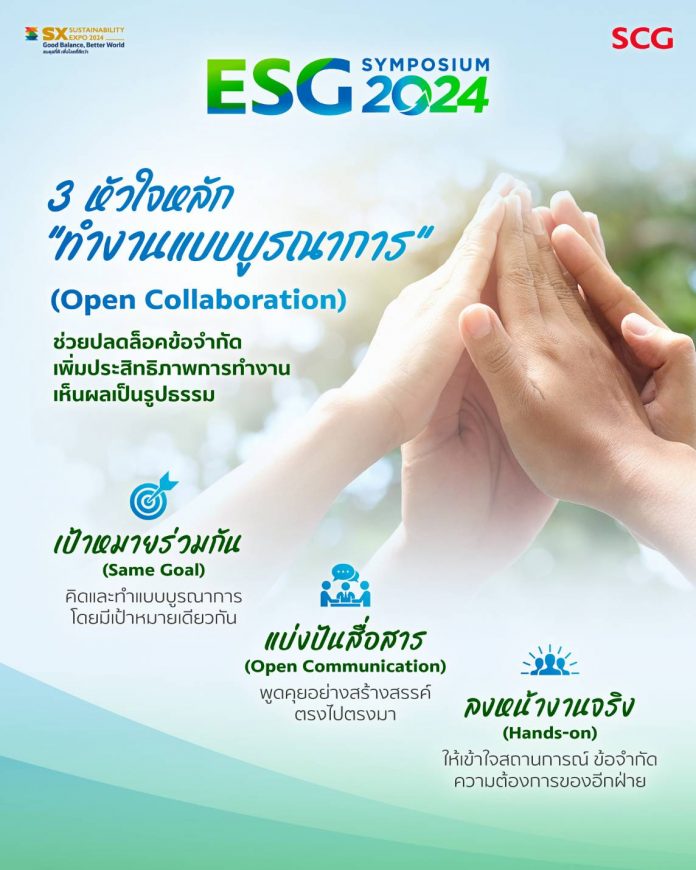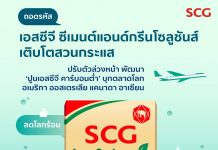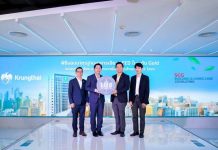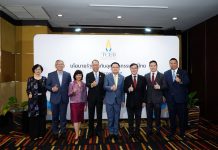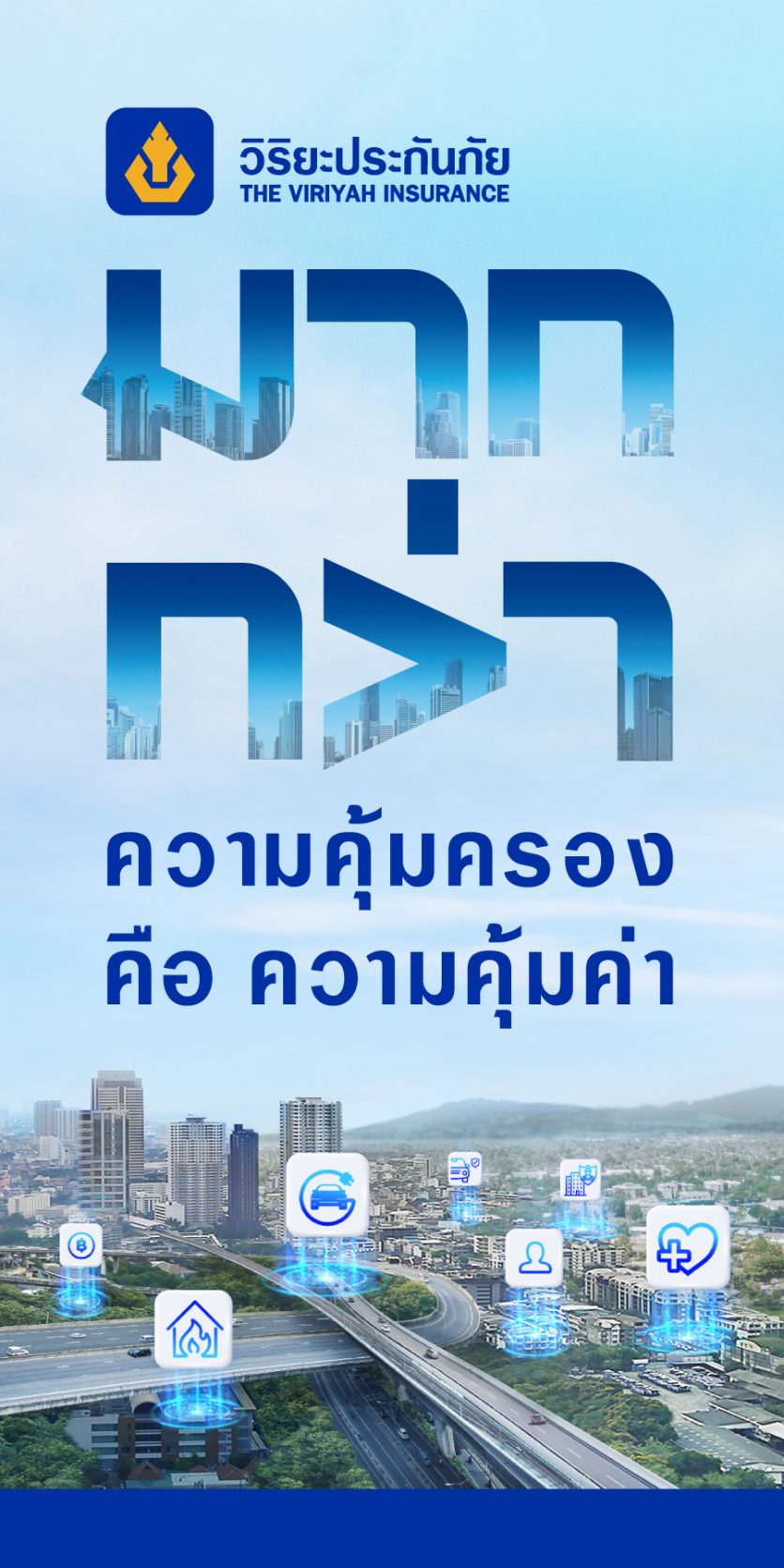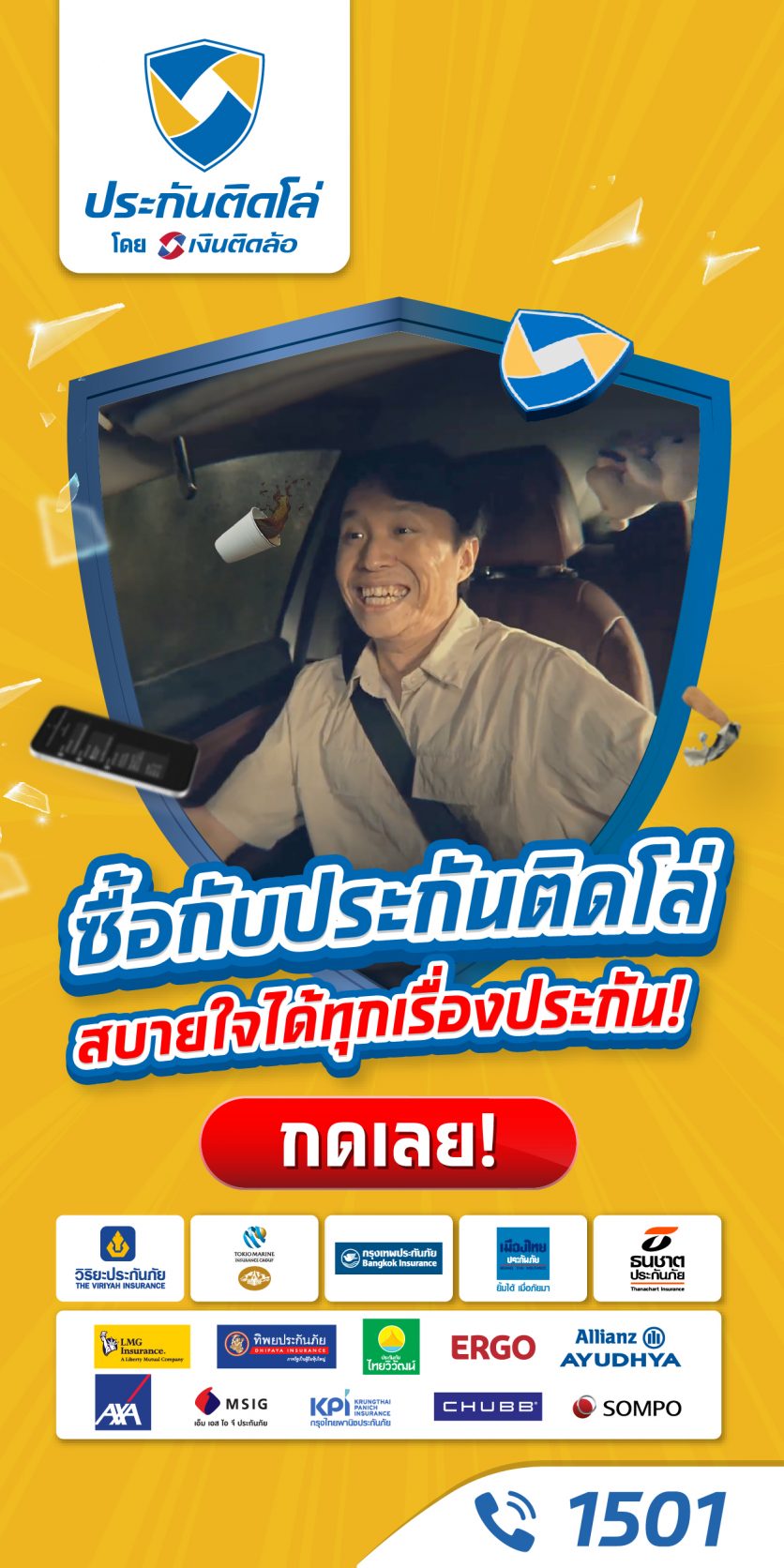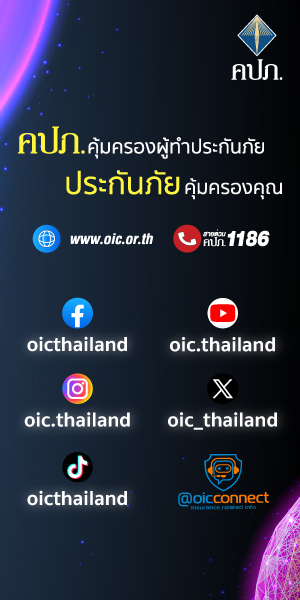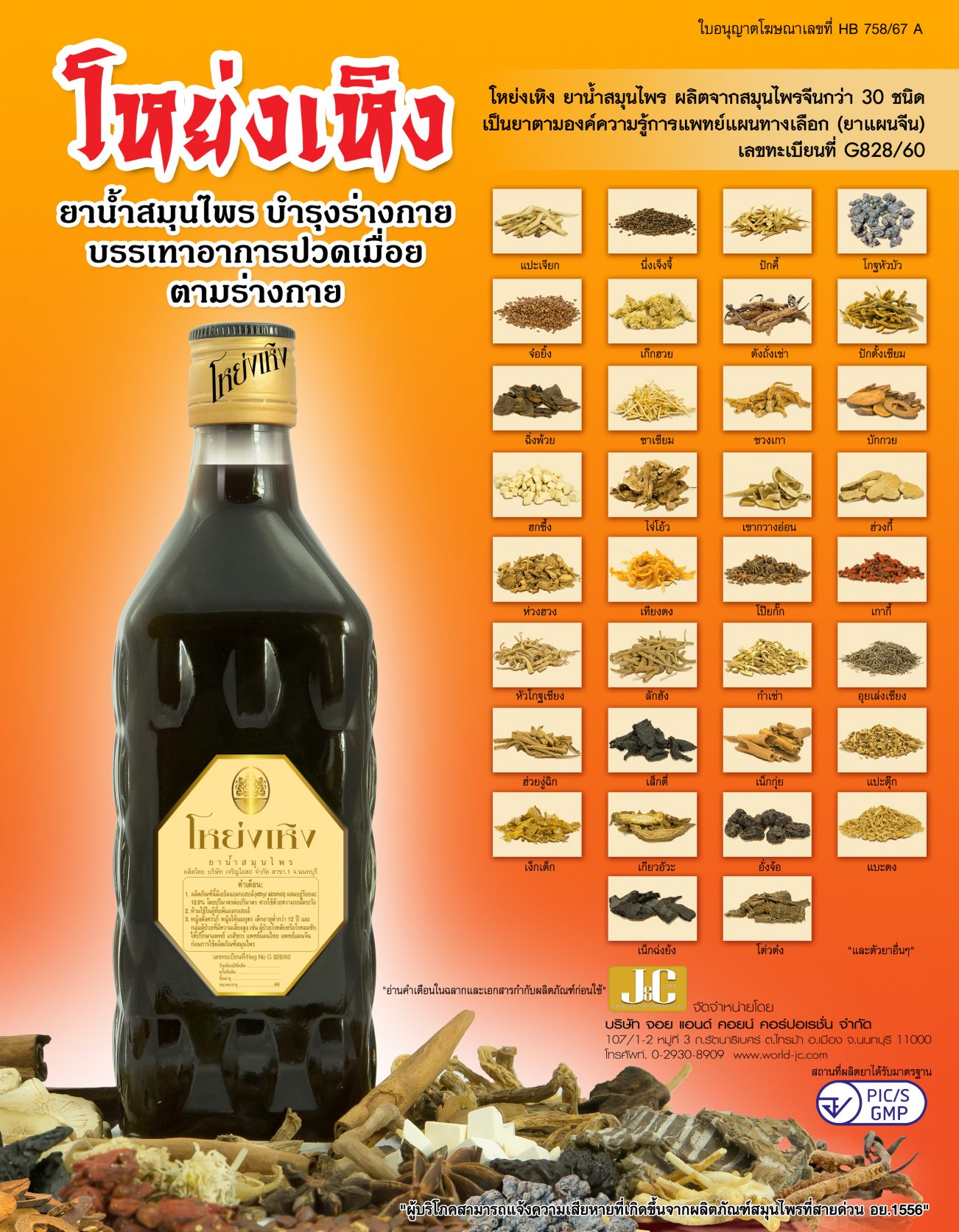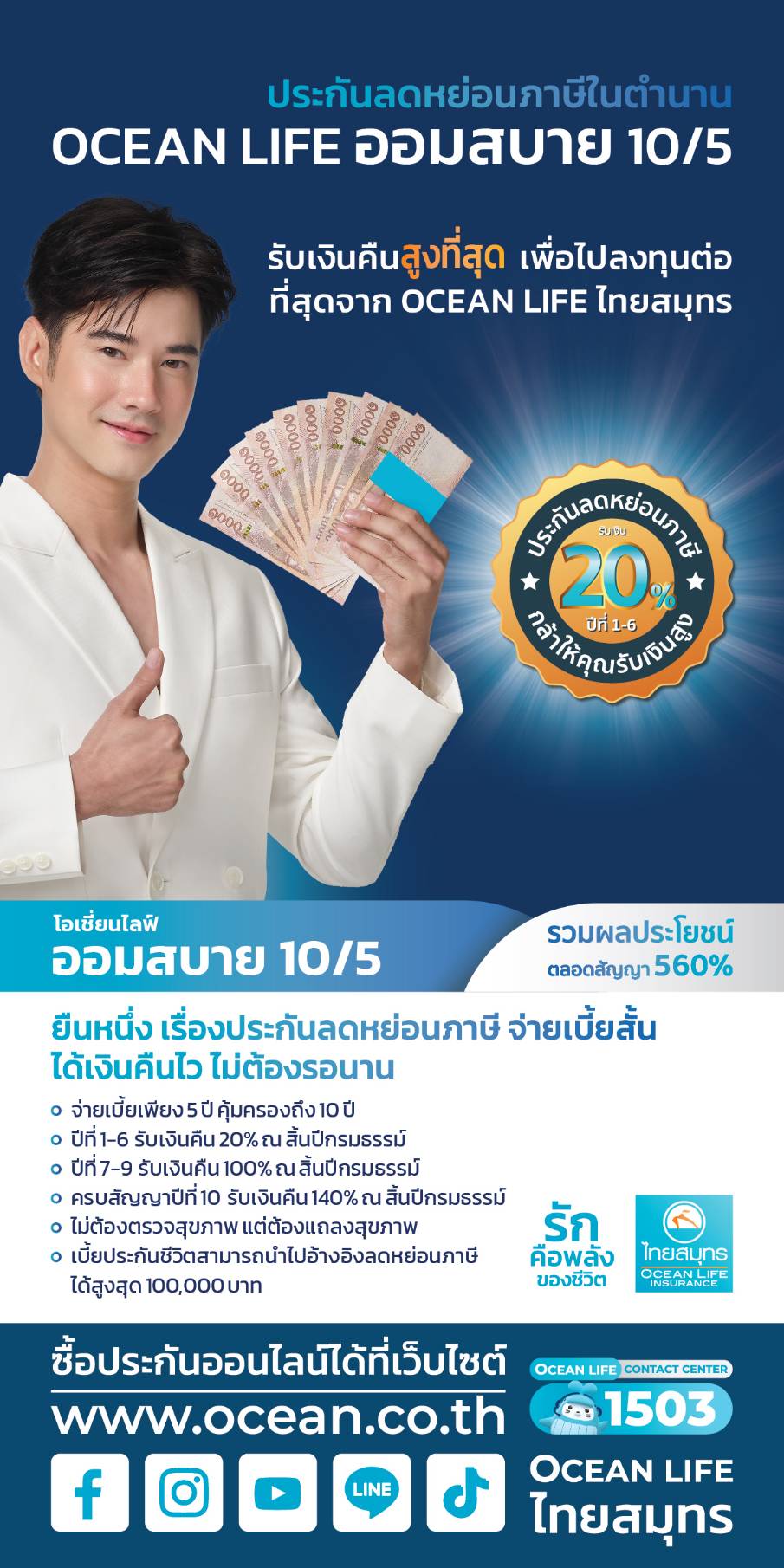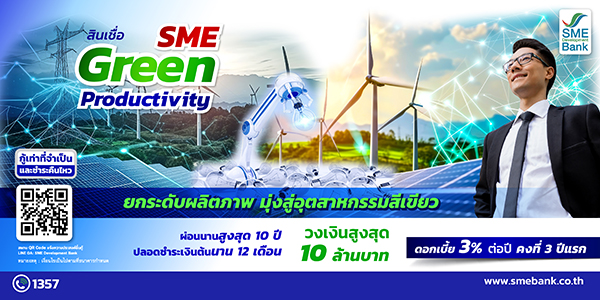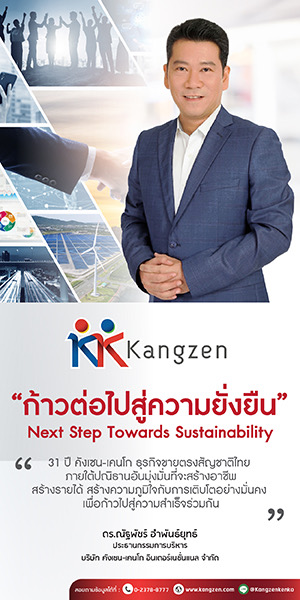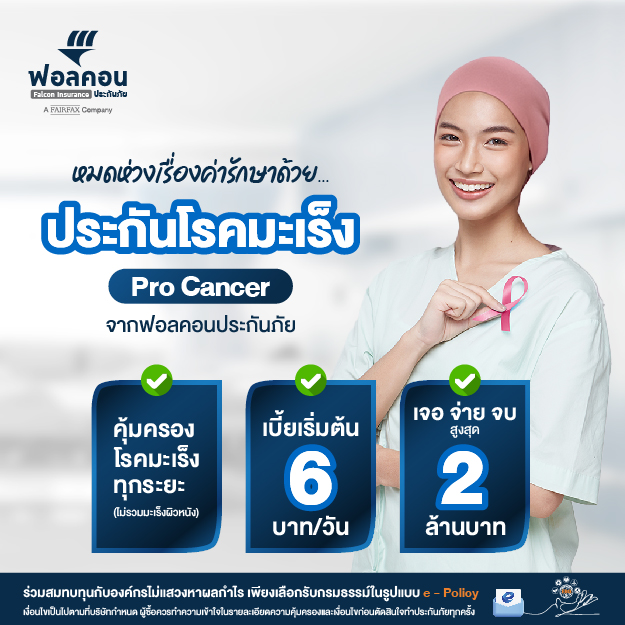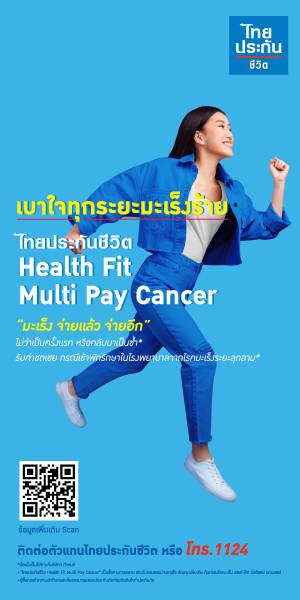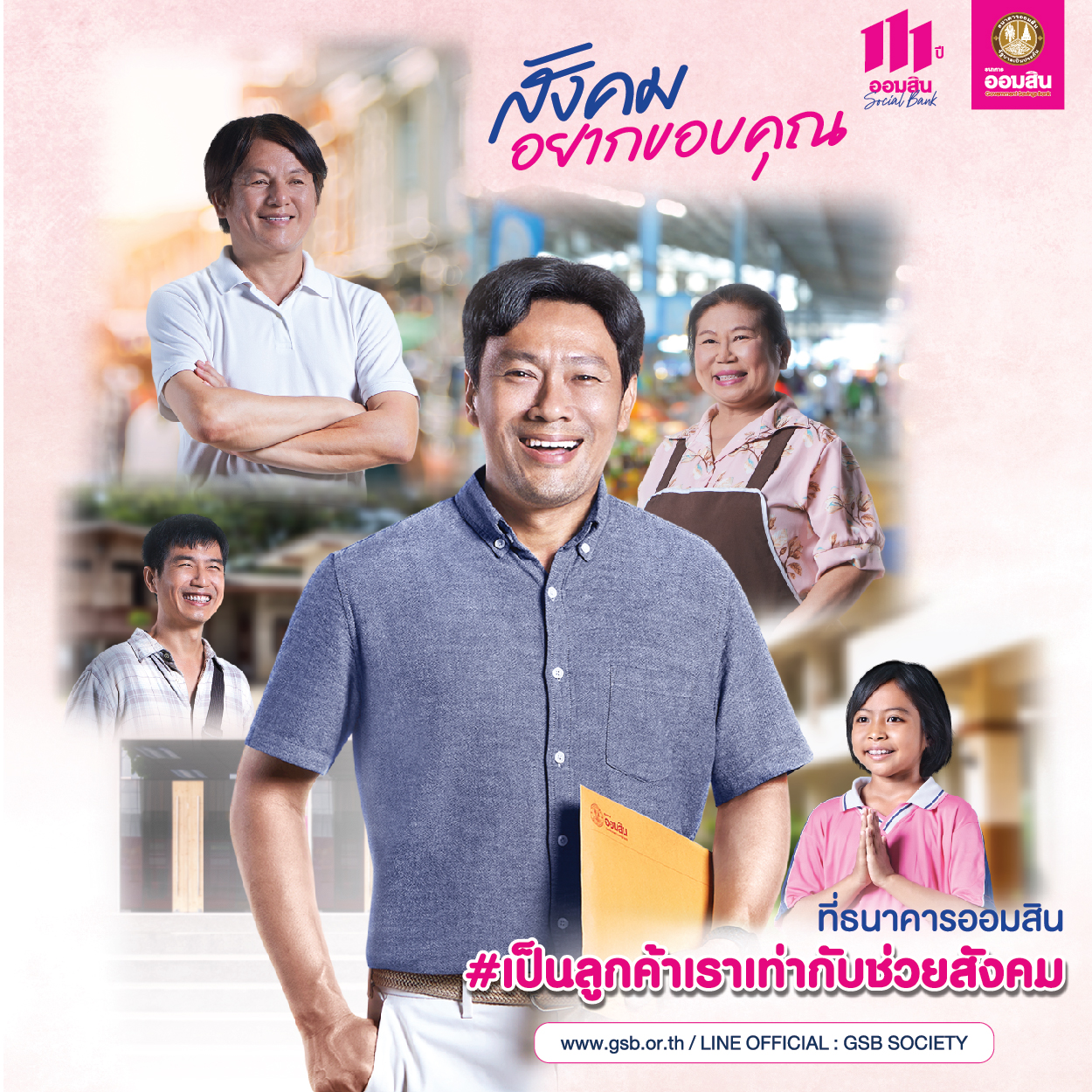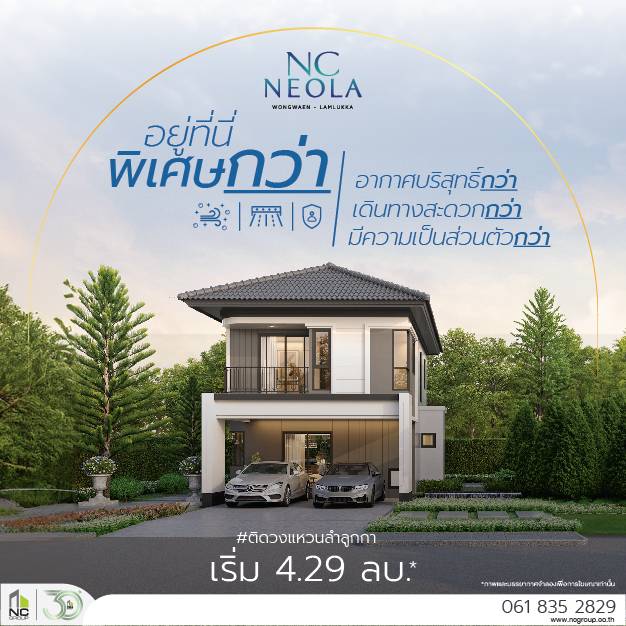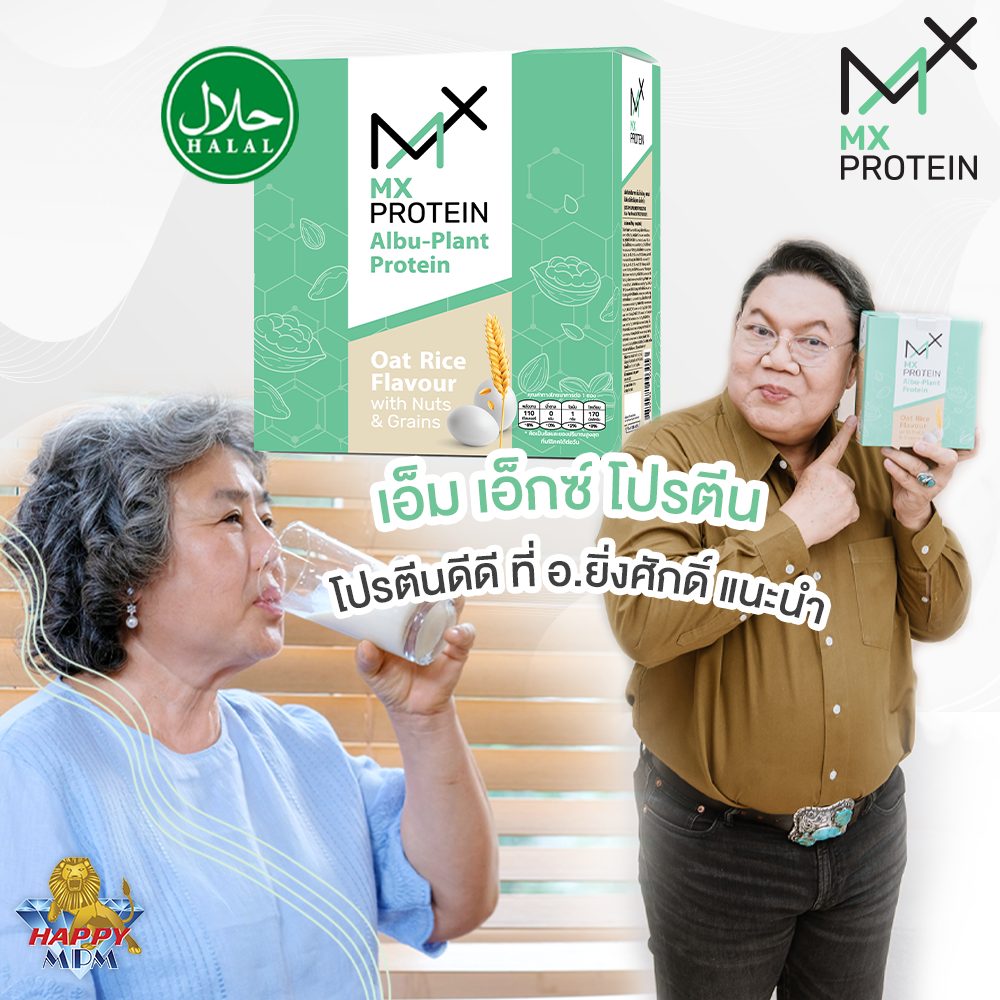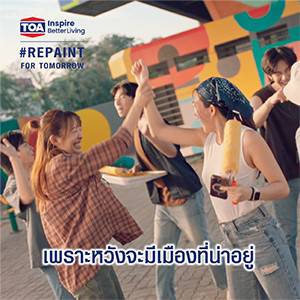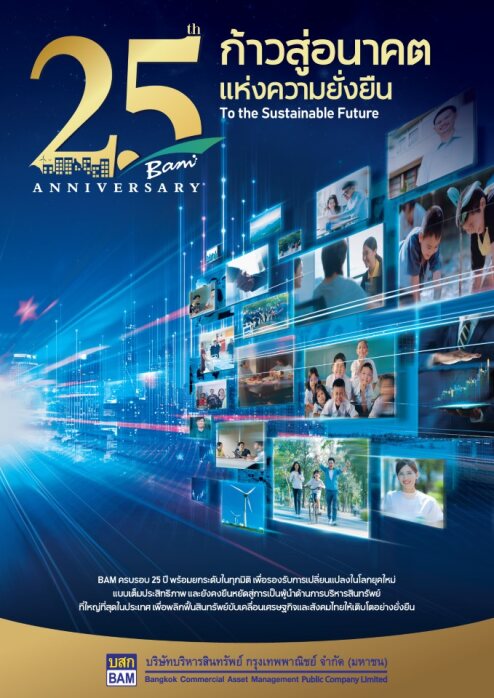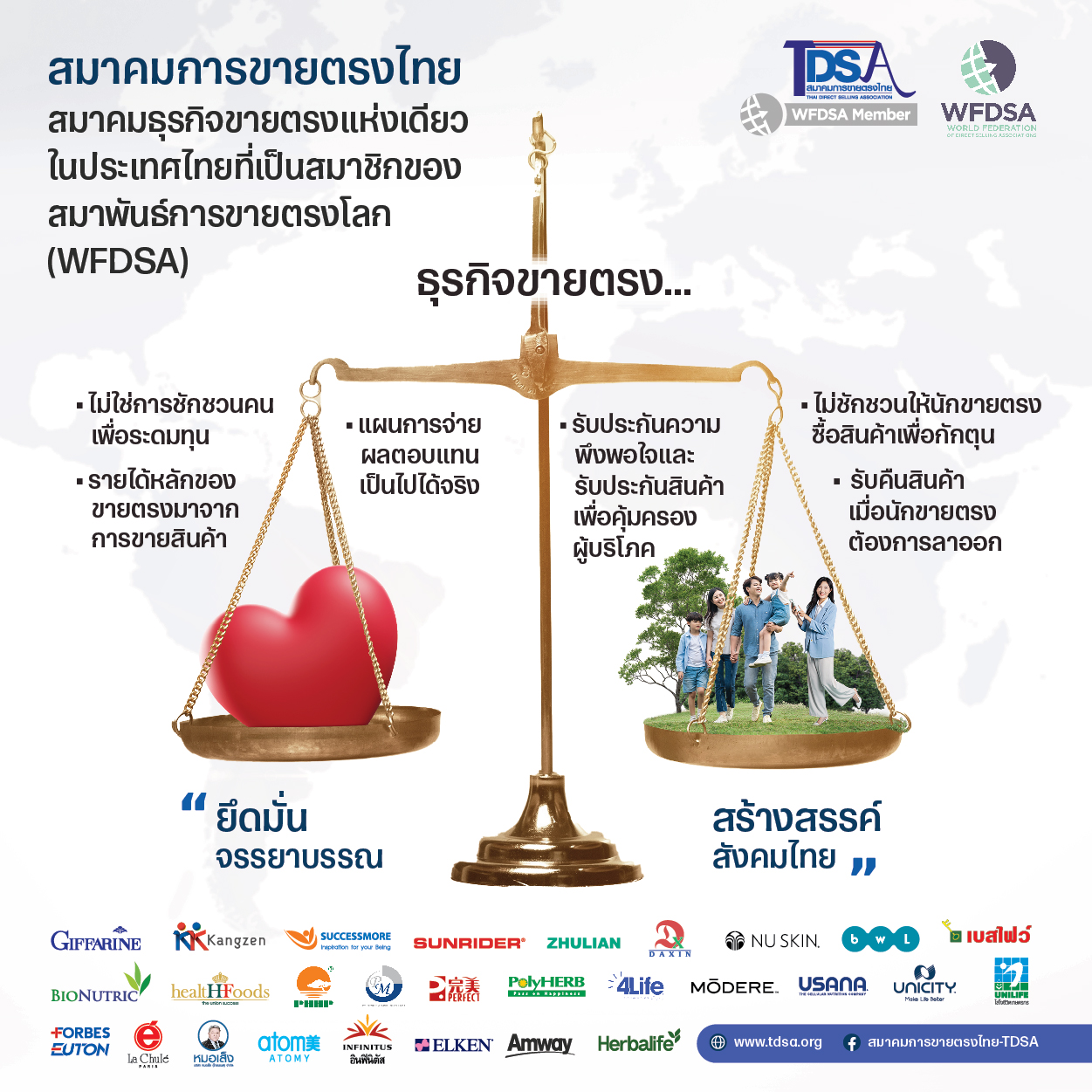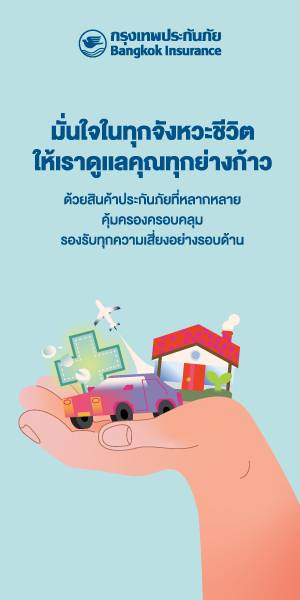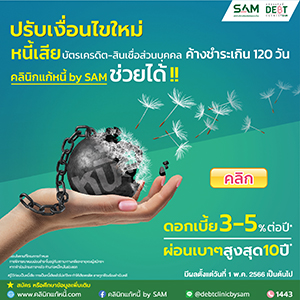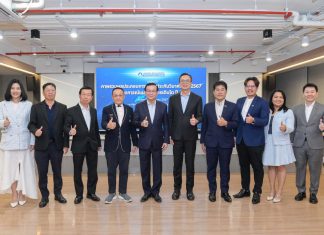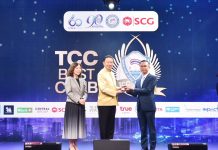ครบ 1 ปีทุกภาคส่วน รัฐ-เอกชน-ประชาสังคม รวมพลัง “ร่วม-เร่ง-เปลี่ยน ไทยสู่สังคมคาร์บอนต่ำ” เกิดความคืบหน้าชัด ทุกฝ่ายขานรับ ปรับวิธีคิด “ทำงานแบบบูรณาการ” ยึดเป้าหมายเดียวกัน สื่อสารตรงไปตรงมา และลุยหน้างานจริง ช่วยปลดล็อค เพิ่มประสิทธิภาพการทำงาน เห็นผลเป็นรูปธรรม ตาม 4 ข้อเสนอจากงาน ESG Symposium 2023 ทั้งสร้าง “สระบุรีแซนด์บ็อกซ์” เมืองต้นแบบคาร์บอนต่ำแห่งแรกของไทยให้เกิดขึ้นจริง ส่งเสริมการก่อสร้างสีเขียวด้วยปูนซีเมนต์คาร์บอนต่ำ เอกชนจับมือจัดการแพคเกจจิ้งใช้แล้วผ่านโครงการรีไซเคิลแบบ Closed-Loop สนับสนุน SMEs เพิ่มโอกาสเข้าถึงความรู้เปลี่ยนธุรกิจสู่คาร์บอนต่ำ ผ่านโครงการ Go Together ปีนี้ทุกภาคส่วนกว่า 3,500 คนรวมพลัง เร่งเปลี่ยนประเทศสู่สังคมคาร์บอนต่ำต่อเนื่องใน ESG Symposium 2024 วันที่ 30 กันยายนนี้ ที่ศูนย์การประชุมแห่งชาติสิริกิติ์
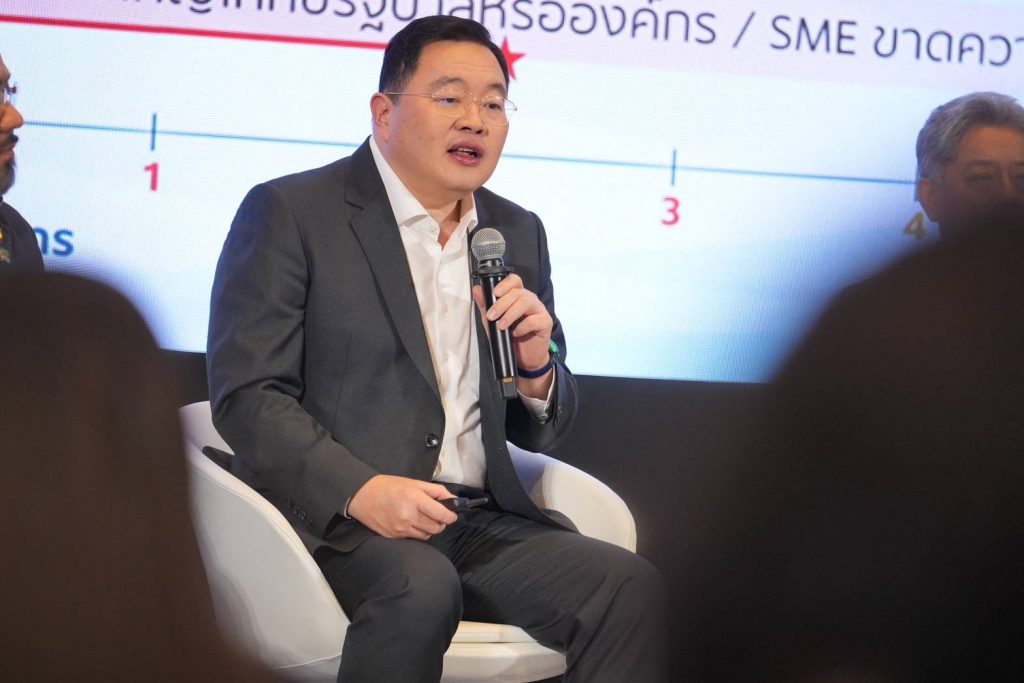
นายธรรมศักดิ์ เศรษฐอุดม กรรมการผู้จัดการใหญ่ เอสซีจี กล่าวว่า “ขอขอบคุณทุกภาคส่วน ทั้งภาครัฐ เอกชน ประชาสังคม ที่ร่วมกันทำภารกิจที่ท้าทายของประเทศตลอด 1 ปีที่ผ่านมา นั่นคือการเร่งเปลี่ยนไทยสู่สังคมคาร์บอนต่ำ ซึ่งเริ่มต้นจากการระดมสมองผู้เกี่ยวข้องกว่า 500 คน ในงาน ESG Symposium 2023 ออกมาเป็นข้อเสนอ 4 แนวทางในการกู้วิกฤติโลกเดือด ซึ่งมีความคืบหน้าที่สำคัญ อาทิ ยกระดับมาตรฐานอุตสาหกรรมปูนซีเมนต์ในประเทศให้เป็นปูนซีเมนต์คาร์บอนต่ำแทนปูนซีเมนต์ปอร์ตแลนด์ ส่งเสริมเกษตรกรมีอาชีพ-รายได้เพิ่มด้วยการปลูกหญ้าเนเปียร์ เพื่อแปรรูปเป็นพลังงานทดแทน สนับสนุนการทำนาเปียกสลับแห้ง ลดใช้น้ำ ใช้ปุ๋ย และลดคาร์บอน ผลักดันการจัดการทรัพยากรอย่างคุ้มค่าตามแนวคิดเศรษฐกิจหมุนเวียน ผ่านการขยายผล “ตาลเดี่ยวโมเดล” รวมทั้งขับเคลื่อนโครงการธนาคารขยะ ถังขยะเปียกลดโลกร้อน เสริมแกร่งเครือข่ายป่าชุมชน 38 แห่ง แลกเปลี่ยนความรู้ สร้างเป็นซุปเปอร์มาร์เก็ตชุมชน ต่อยอดสู่การท่องเที่ยวเชิงอนุรักษ์ ติดตั้งSolar Carport ที่ศูนย์ราชการ จ.สระบุรี
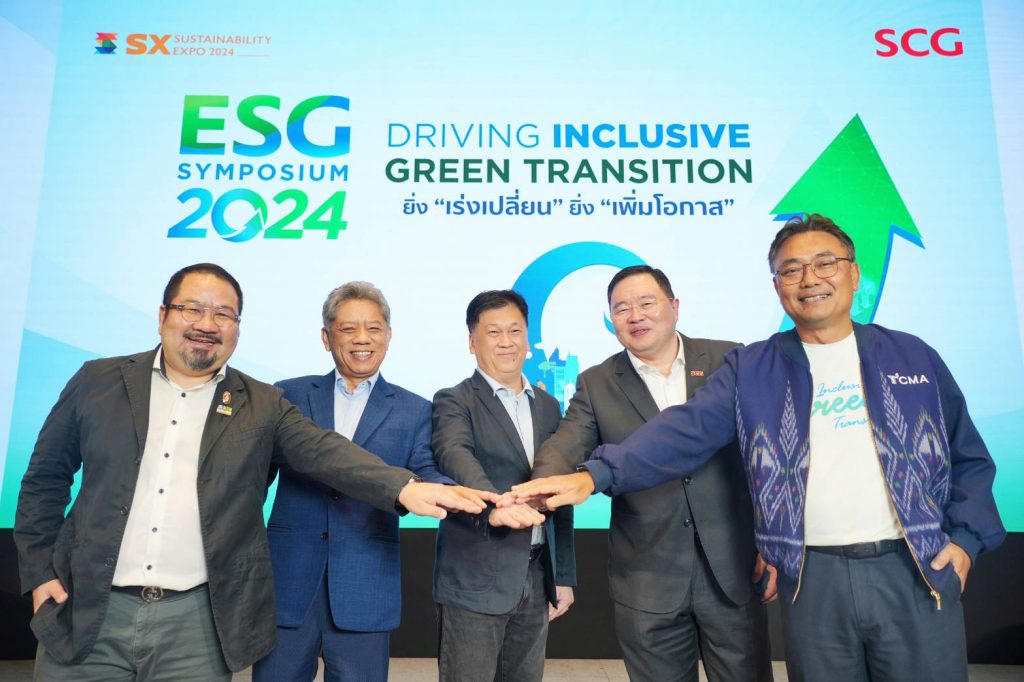
ซึ่งจะขยายผลสู่หน่วยงานอื่นต่อไป ส่งเสริมความรู้ SMEs เปลี่ยนธุรกิจสู่คาร์บอนต่ำ ผ่านโครงการ Go Together โดยรุ่นแรกมีผู้เข้าร่วมกว่า 80 คน จากทั้งหมด 20 รุ่นทั่วประเทศ ตามแผนปี 2567-2568 ตั้งเป้าส่งต่อความรู้สู้โลกเดือดให้ SMEs 1,200 คน ขณะที่โครงการเครื่องใช้ไฟฟ้ารักษ์โลก ซึ่งเป็นการจับมือระหว่างโฮมโปรและเอสซีจีซี เป็นตัวอย่างการนำเครื่องใช้ไฟฟ้าเก่ามารีไซเคิลแบบ Closed-Loop สำหรับบางโครงการแม้ยังมีข้อติดขัด แต่ก็มุ่งมั่นเดินหน้าต่อ ร่วมกันปลดล็อคให้การทำงานติดสปีดเร็วขึ้น อาทิ โครงข่ายไฟฟ้าอัจฉริยะ (Grid Modernization) รองรับการเปิดเสรี ซื้อ-ขายไฟฟ้าพลังงานสะอาด หรือการสนับสนุน SMEs เข้าถึงแหล่งเงินทุน (Green Finance) ทั้งภายในและนอกประเทศ เพื่อเปลี่ยนกระบวนการผลิตให้เป็นมิตรต่อสิ่งแวดล้อม
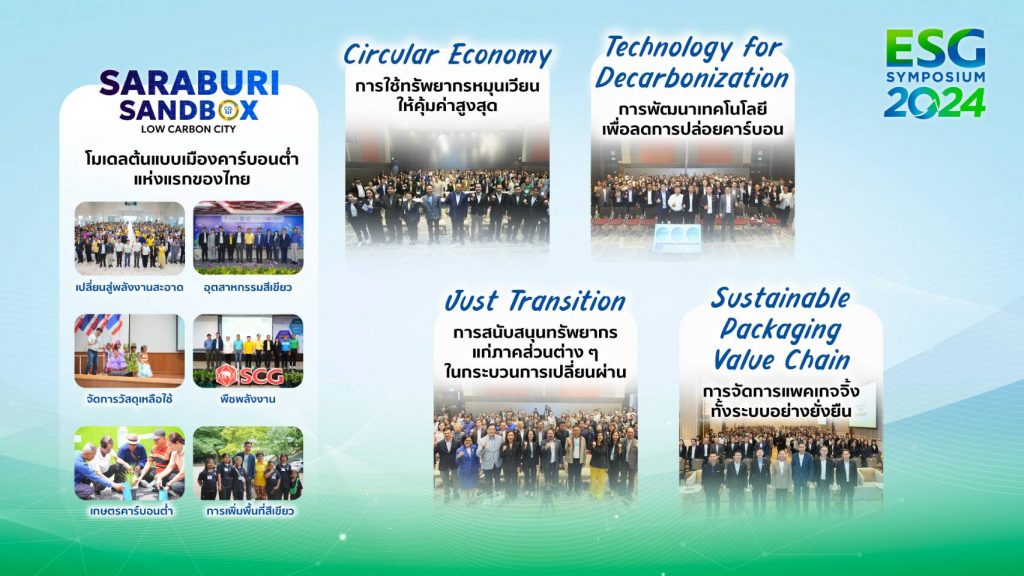
ความคืบหน้าข้างต้นเกิดขึ้นได้จากการปรับวิธีคิด เน้นทำงานแบบบูรณาการ (Open Collaboration) มี 3 หัวใจหลัก 1) เป้าหมายร่วมกัน (Same Goal) คือเปลี่ยนไทยสู่สังคมคาร์บอนต่ำตาม NDC Roadmap (แผนที่นำทางการลดก๊าซเรือนกระจกของประเทศ) 2) แบ่งปันสื่อสาร (Open Communication) พูดคุยอย่างสร้างสรรค์ ตรงไปตรงมา เพื่อปลดล็อคข้อจำกัดต่าง ๆ ที่พบระหว่างการทำงาน 3) ลงหน้างานจริง (Hands-on) ให้เข้าใจสถานการณ์ ข้อจำกัด และความต้องการของอีกฝ่าย แล้วนำมาปรับวิธีทำงานให้ตอบโจทย์เป้าหมายร่วมกันได้ดีที่สุด ช่วยให้งานมีประสิทธิภาพและรวดเร็วขึ้น หลังจากนี้ทุกภาคส่วนยังคงเดินหน้าเร่งขับเคลื่อนทุกโครงการ เพื่อให้สังคมคาร์บอนต่ำเกิดขึ้นจริงในประเทศไทย”
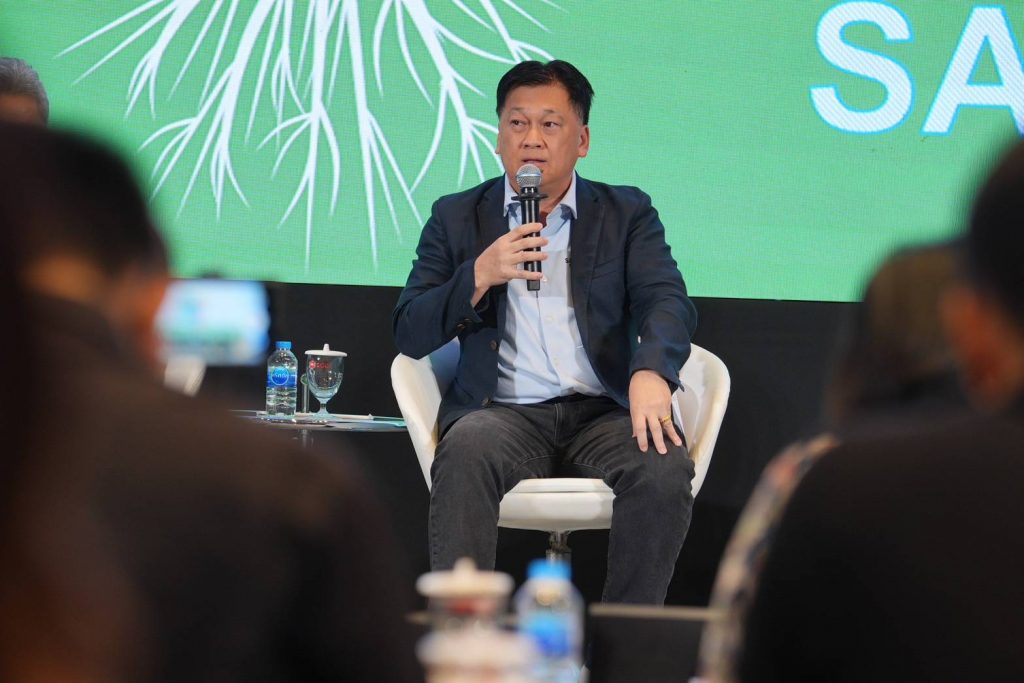
นายบัญชา เชาวรินทร์ ผู้ว่าราชการจังหวัดสระบุรี กล่าวว่า “การเปลี่ยนจังหวัดสระบุรี เมืองอุตสาหกรรมของประเทศให้เป็นเมืองคาร์บอนต่ำแห่งแรกของไทย เป็นเรื่องท้าทายมาก แต่เราก็ทำได้ด้วยโมเดล PPP หรือ Public-Private Partnership ที่ทุกภาคส่วนเห็นเป้าหมายเดียวกัน และพร้อมขับเคลื่อนไปด้วยกัน เห็นชัดจากการนำหลักเศรษฐกิจหมุนเวียนมาใช้จัดการวัสดุเหลือใช้ทั่วทั้งจังหวัด อาทิ โครงการธนาคารขยะ ขององค์กรปกครองส่วนท้องถิ่น สนับสนุนชุมชนคัดแยกขยะครัวเรือนตั้งแต่ต้นทาง ปัจจุบันดำเนินการครบทั้ง 108 องค์กรปกครองส่วนท้องถิ่น เกิดเป็นกองทุนธนาคารขยะ 123 กองทุน ขณะเดียวกันช่วยลดภาระงบประมาณการจัดเก็บและขนย้ายขยะมูลฝอยขององค์กรปกครองส่วนท้องถิ่นอีกด้วย โครงการถังขยะเปียกลดโลกร้อน มีคาร์บอนเครดิตที่ได้รับการรับรองจากองค์การบริหารจัดการก๊าซเรือนกระจก (อบก.) จำนวน 3,495 ตัน CO2 เทียบเท่า สร้างรายได้ให้ชุมชนเกือบ 1 ล้านบาท ขณะที่การส่งเสริมการปลูกพืชพลังงาน เช่น หญ้าเนเปียร์ เพื่อแปรรูปเป็นเชื้อเพลิงชีวมวลใช้ทดแทนเชื้อเพลิงฟอสซิล ได้ปลดล็อคด้วยการให้ความรู้แก่เกษตรกร เป็นตัวกลางเชื่อมให้ภาคอุตสาหกรรมมารับซื้อ สร้างความมั่นใจในด้านรายได้ให้เกษตรกร ปัจจุบันปลูกแล้วกว่า 100 ไร่ ที่ อ.แก่งคอย จ.สระบุรี คาดว่าสามารถแปรรูปเป็นพลังงานทดแทนได้ 2,100 ตัน สร้างรายได้ให้เกษตรกร 2.5 ล้านบาทต่อปี และยังลดการปล่อยคาร์บอนได้ 2,500 ตัน CO2 เทียบเท่า”
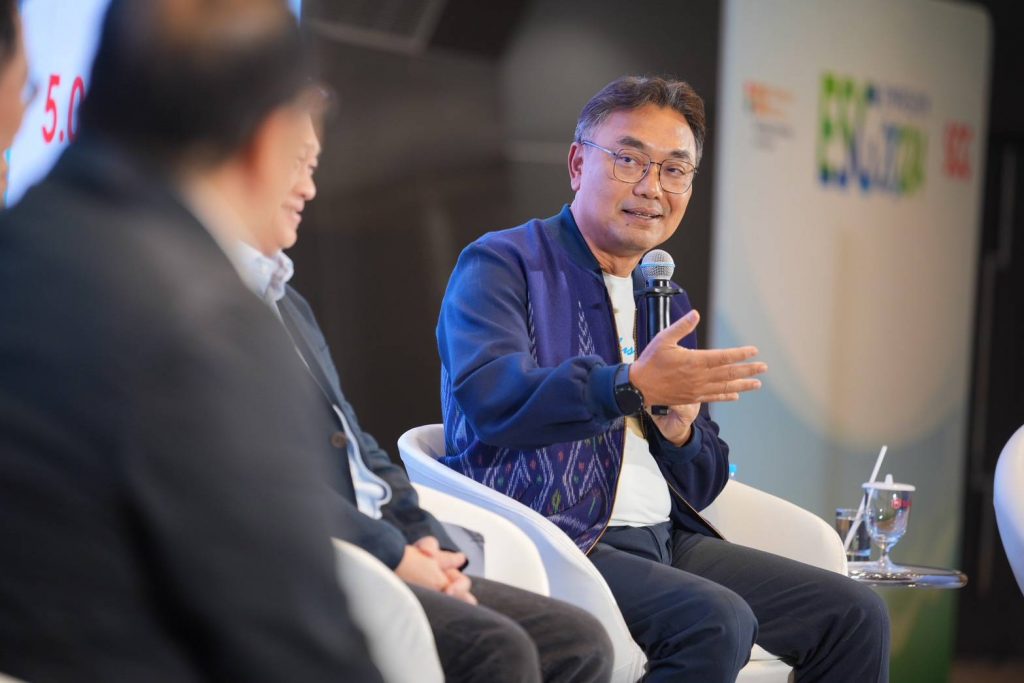
นายชนะ ภูมี นายกสมาคมอุตสาหกรรมปูนซีเมนต์ไทย (TCMA) กล่าวว่า “ฐานกำลังการผลิตปูนซีเมนต์ของประเทศกว่าร้อยละ 80 อยู่ที่สระบุรี ที่นี่จึงเป็นเสมือนบ้านของผู้ประกอบการในอุตสาหกรรมปูนซีเมนต์ เราจึงอยากพัฒนาบ้านของเราให้ดีขึ้น โดยร่วมกับทุกภาคส่วนเร่งเปลี่ยนสระบุรีให้เป็นเมืองคาร์บอนต่ำแห่งแรกของไทย เริ่มจากพัฒนาปูนซีเมนต์คาร์บอนต่ำ (ปูนซีเมนต์ไฮดรอลิค : Hydraulic Cement) ที่ลดการปล่อยคาร์บอนจากการผลิต และสนับสนุนให้ใช้ในโครงการก่อสร้างของภาครัฐ
ซึ่งปัจจุบันสัดส่วนการใช้ปูนซีเมนต์คาร์บอนต่ำแทนปูนซีเมนต์ปอร์ตแลนด์ สูงถึงกว่าร้อยละ 80 ช่วยลดการปล่อยคาร์บอนได้ถึง 1,169,673 ตัน CO2 (ข้อมูลสะสม มกราคม 2565 ถึงมีนาคม 2567) ซึ่งเป็นส่วนสำคัญในการดำเนินงานตามเป้าหมายของ จ.สระบุรี โดยไทยตั้งเป้าเป็นประเทศแรกในเอเชียที่จะไม่มีปูนซีเมนต์ปอร์ตแลนด์ภายในปี 2568 อีกทั้งมีแผนการใช้ปูนซีเมนต์คาร์บอนต่ำประเภทใหม่ ๆ ที่ลดการปล่อยคาร์บอนจากกระบวนการผลิตได้มากขึ้น สำหรับแนวทางการเปลี่ยนผ่านสู่พลังงานสะอาด ได้ทำงานร่วมกับมหาวิทยาลัย Princeton ซึ่งมีความชำนาญและเครื่องมือในการจัดทำแผน Energy Transition ของสหรัฐอเมริกา โดยร่วมกันประเมินเส้นฐาน (Baseline) การปล่อยก๊าซเรือนกระจกในภาคพลังงาน และกำหนด Energy Roadmap ของ จ.สระบุรี รวมถึงประเมินแนวทางการใช้พื้นที่ของจังหวัดฯ ทำเป็น Solar PV พลังงานสะอาด เพื่อให้เกิดความรวดเร็วและลดค่าใช้จ่ายดำเนินงาน นอกจากนั้นควรเร่งพัฒนา Green Infrastructure รองรับการเปลี่ยนผ่านสู่พลังงานสะอาดของประเทศ โดยศึกษากระบวนการเปลี่ยนผ่านพลังงานของจีน ที่มีการแบ่งลำดับขั้นตามความพร้อมของแต่ละอุตสาหกรรม รวมถึงตัวอย่างของไต้หวันที่มีโครงสร้างไฟฟ้าแบบการประมูลรายวัน ปัจจุบันเรามีความร่วมมือกับทั้ง 2 ประเทศในการพัฒนา Grid Modernization ในสระบุรีแซนด์บ็อกซ์”
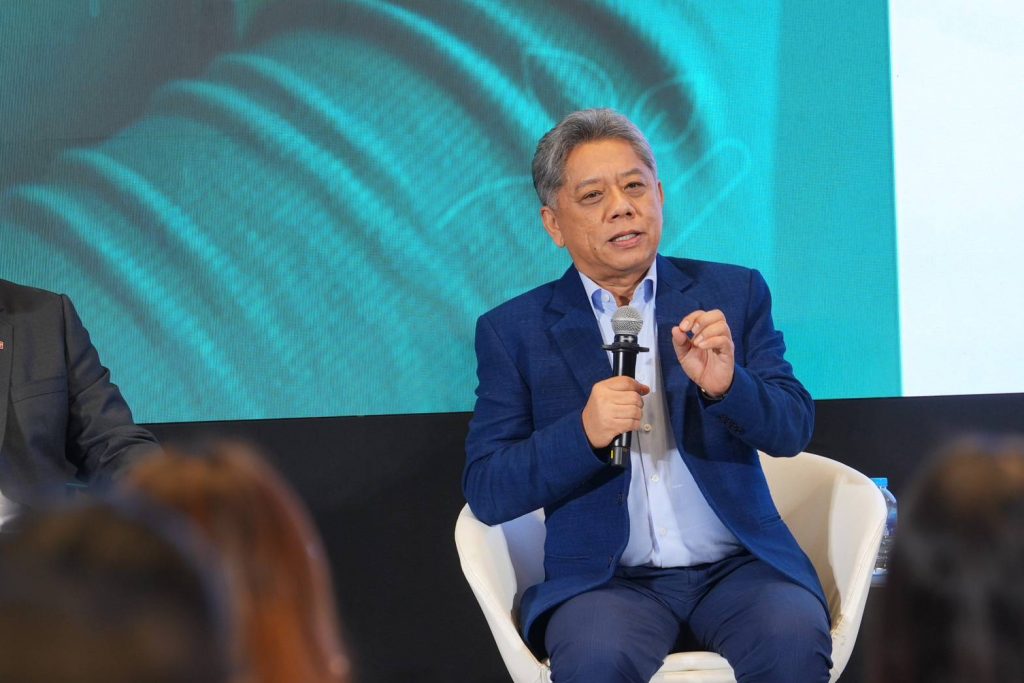
นายวีรพันธ์ อังสุมาลี กรรมการผู้จัดการ บริษัท โฮม โปรดักส์ เซ็นเตอร์จำกัด (มหาชน) กล่าวว่า “โฮมโปรในฐานะผู้นำเรื่องบ้าน เล็งเห็นถึงความต้องการของผู้บริโภคที่ต้องการเปลี่ยนสินค้าในบ้าน แต่ไม่รู้วิธีจัดการสินค้าใช้แล้วที่ถูกต้อง จึงริเริ่มโครงการ Closed-Loop Circular Products ซึ่งเป็นการนำสินค้าที่ใช้งานแล้วจากลูกค้าโฮมโปร มาจัดการอย่างถูกวิธี โดยคัดแยกชิ้นส่วนที่สามารถนำไปรีไซเคิลใหม่ และได้ความร่วมมือจากพันธมิตรหัวใจสีเขียวอย่างเอสซีจีซี ที่มีเป้าหมายด้านการพัฒนาอย่างยั่งยืนเหมือนกัน ช่วยพัฒนาสูตรพลาสติกรีไซเคิลคุณภาพสูงที่เรียกว่า Green Polymer เพื่อนำกลับมาผลิตอีกครั้งเป็นสินค้ารักษ์โลกให้กับลูกค้าโฮมโปร ปัจจุบันโฮมโปรมี Circular Products ตั้งแต่เครื่องใช้ไฟฟ้า อย่างตู้เย็น เครื่องทำน้ำอุ่น พัดลม ไปจนถึงกระเบื้อง กล่องอเนกประสงค์ ถุงช้อปปิ้ง และอื่น ๆ ซึ่งการส่งเสริมให้เกิด Circular Products ด้วยระบบ Closed-Loop ถือเป็นภารกิจที่ตอบเป้าหมายการบรรลุความเป็นกลางทางคาร์บอนในปี 2593 ของโฮมโปรได้อย่างเป็นรูปธรรม”
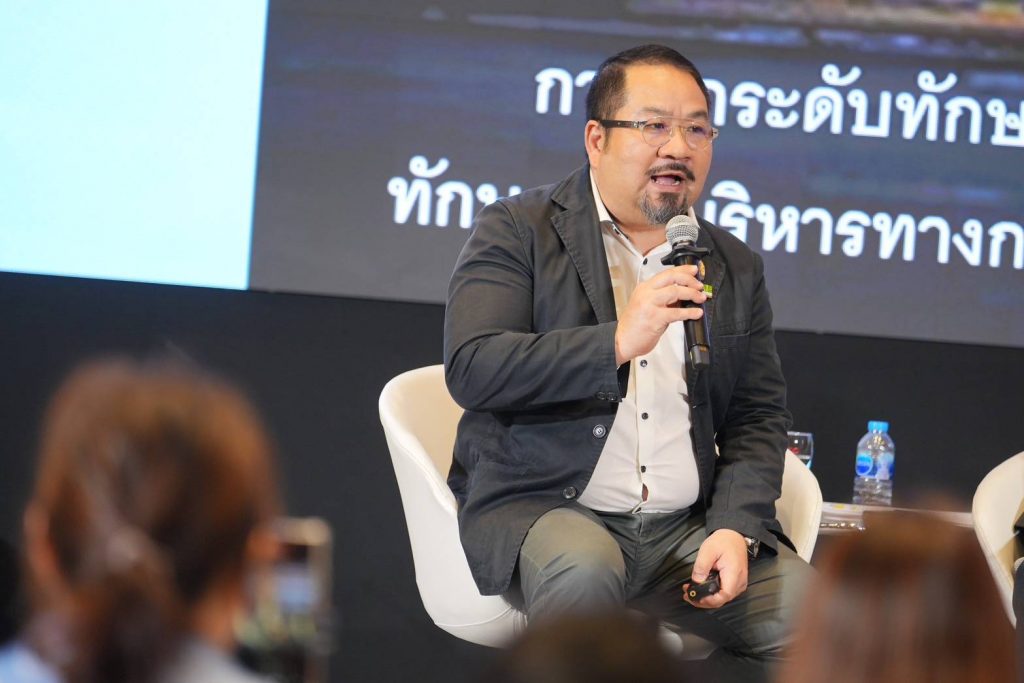
นายแสงชัย ธีรกุลวาณิช ประธานสมาพันธ์เอสเอ็มอีไทย กล่าวว่า “ความท้าทายของผู้ประกอบการรายย่อยไทยต่อจากนี้คือ การปรับธุรกิจให้เข้ากับกฎเกณฑ์ใหม่ที่เกิดจากประเด็นความห่วงใยด้านสิ่งแวดล้อม สภาพภูมิอากาศที่เปลี่ยนไป อาทิ Thailand Taxonomy มาตรฐานการจัดกลุ่มกิจกรรมทางเศรษฐกิจที่เป็นมิตรต่อสิ่งแวดล้อมของไทย หรือ CBAM มาตรการปรับราคาคาร์บอนก่อนข้ามพรมแดนของสหภาพยุโรป ซึ่งเป็นเสมือนกำแพงทางการค้า ธุรกิจที่ปรับตัวได้ก่อน จะก้าวข้ามข้อจำกัดดังกล่าวและพาธุรกิจอยู่รอดได้เร็ว ดังนั้นสมาพันธ์เอสเอ็มอีไทยจึงสนับสนุน SMEs ให้เข้าถึงความรู้ มาตรฐานใหม่ ๆ เทคโนโลยีกระบวนการผลิตเป็นมิตรสิ่งแวดล้อม แหล่งเงินทุนสีเขียวทั้งในและนอกประเทศสำหรับใช้ในการปรับธุรกิจ เน้นสร้างกลไกเชื่อมโยงอย่างเป็นระบบ เพิ่มโอกาสเข้าถึงและใช้ประโยชน์จากมาตรการต่าง ๆ ทั้งการเงิน ส่งเสริมความรู้ การใช้เทคโนโลยีดิจิทัล นวัตกรรม การทำตลาดทั้งในและต่างประเทศ นอกจากนั้นยังต้องขอรับการสนับสนุนจากภาครัฐเพื่อช่วย SMEs ให้ร่วมยกระดับเศรษฐกิจฐานรากสู่ความยั่งยืนด้วย”
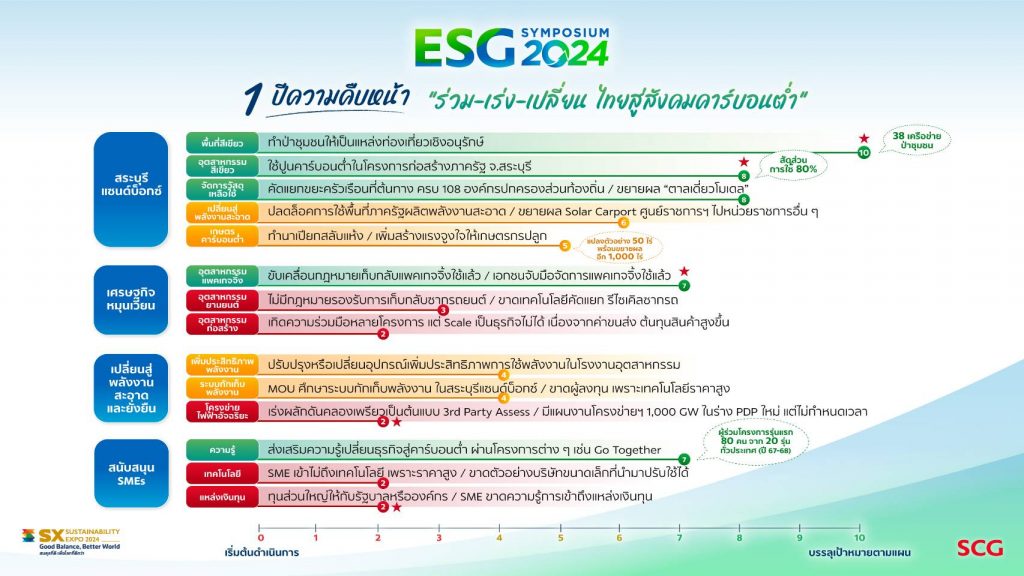
นายธรรมศักดิ์ กล่าวเพิ่มเติมว่า “การเปลี่ยนสู่สังคมคาร์บอนต่ำไม่เพียงช่วยบรรเทาความรุนแรงของวิกฤตโลกเดือด แต่ยังเพิ่มความสามารถในการแข่งขันให้กับธุรกิจและประเทศ โดยเฉพาะในภาวะเศรษฐกิจขาลง ตลาดแข่งขันสูงจากสินค้านำเข้าจากจีน การบังคับใช้มาตรการ CBAM ที่จะกระทบต่อภาคการผลิต นำเข้า และส่งออกผลิตภัณฑ์ที่ปล่อยคาร์บอน เราจึงต้องเร่งเปลี่ยนประเทศสู่สังคมคาร์บอนต่ำ ควบคู่ไปกับการสร้างความสามารถในการแข่งขันด้วยวิธีการอื่น ๆ ปีนี้ทุกภาคส่วนจึงร่วมกันจัดงาน ESG Symposium 2024 ภายใต้ธีม “Driving Inclusive Green Transition ยิ่งเร่งเปลี่ยน ยิ่งเพิ่มโอกาส” โดยนำข้อเสนอจากการหารือระหว่างผู้มีส่วนเกี่ยวข้อง 5 ด้านสำคัญ ได้แก่ 1) Saraburi Sandbox โมเดลต้นแบบเมืองคาร์บอนต่ำแห่งแรกของไทย 2) Circular Economy การใช้ทรัพยากรหมุนเวียนให้คุ้มค่าสูงสุด 3) Just Transition การสนับสนุนทรัพยากรแก่ภาคส่วนต่าง ๆ ที่อยู่ในกระบวนการเปลี่ยนผ่าน 4) Technology for Decarbonization การพัฒนาเทคโนโลยีลดการปล่อยก๊าซคาร์บอนไดออกไซด์ 5) Sustainable Packaging Value Chain การจัดการแพคเกจจิ้งทั้งระบบอย่างยั่งยืน มานำเสนอต่อรัฐบาล เพื่อร่วม-เร่ง-เปลี่ยนไทยสู่สังคมคาร์บอนต่ำให้เร็วขึ้นกว่าเดิม”
งาน ESG Symposium 2024 จัดขึ้นวันที่ 30 กันยายนนี้ ณ Hall 1 ชั้น G ศูนย์การประชุมแห่งชาติสิริกิติ์ เวลา 11.00-16.30 น. โดยมีวิทยากรระดับโลกร่วมแบ่งปันประสบการณ์และตัวอย่างที่หลากหลายในการเปลี่ยนประเทศสู่สังคมคาร์บอนต่ำ พร้อมชมนิทรรศการจำลองการใช้ชีวิตแบบโลว์คาร์บอน รับชมการถ่ายทอดสดได้ที่ Facebook และ Youtube ของเอสซีจี ดูรายละเอียดเพิ่มเติมที่ www.scg.com
One-Year Progress of ESG Symposium “Accelerating Changes Towards Low Carbon Society” Showcases Collective Action Against Global Climate Crisis, Boosting Opportunities for SMEs
Over the past year, the collective effort of the public, private, and civil society sectors has made significant progress in driving the “Accelerating Changes Towards Low Carbon Society” initiative. All parties have embraced a new mindset of “open collaboration,” aligning under a common goal, communicating transparently, and working directly in the field. This approach has unlocked new efficiencies and delivered tangible results, aligned with the four proposals from the ESG Symposium 2023. These include the creation of Thailand’s first low-carbon model city, “Saraburi Sandbox”; the promotion of green construction using Low Carbon Cement; private sector collaboration on managing used packaging through Closed-Loop Recycling initiatives; and support for SMEs to access knowledge and transition their businesses towards low-carbon operations through the Go Together project. This year, over 3,500 participants from many sectors will continue to drive the country’s transition to a low-carbon society at the ESG Symposium 2024, to be held on September 30 at the Queen Sirikit National Convention Center.
Thammasak Sethaudom, President & CEO of SCG, said, “I would like to thank all sectors—government, private, and civil society—for their collaboration over the past year in tackling the nation’s challenging mission of accelerating Thailand’s transition towards a low-carbon society. This effort began with a brainstorming session involving over 500 stakeholders at the ESG Symposium 2023, resulting in four key proposals to address the global climate crisis. Significant progress has been made, such as upgrading the domestic cement industry standards to Low Carbon Cement to replace Portland cement, and promoting sustainable agriculture by encouraging farmers to grow Napier grass for conversion into alternative energy. Other initiatives include supporting alternating wet and dry rice farming to reduce water usage, fertilizers, and carbon emissions, and driving efficient resource management aligned with the circular economy concept through the expansion of the “Tan Diao Model” as well as through the establishment of waste banks and wet waste compost bins to mitigate climate change, strengthened networks of 38 community forests to exchange knowledge, transformed these areas into vital food sources for communities, and extended into eco-tourism. The installation of Solar Carports at the Saraburi Government Center is set to expand to other agencies. The Go Together project aims to educate SMEs on transitioning their businesses to low-carbon models, with over 80 participants in the first class out of 20 planned classes nationwide for 2024-2025, targeting to equip 1,200 SMEs with knowledge to combat global boiling. Meanwhile, the Closed-Loop Circular Products, a partnership between HomePro and SCGC, exemplifies the recycling of used electrical appliances through a closed-loop system. Despite encountering obstacles in some projects, such as Grid Modernization for smart electricity networks to support the open market for clean energy trading, and facilitating SMEs’ access to green finance, both domestically and internationally, the commitment to overcome these challenges continues, aiming to accelerate progress in sustainable operations.
The above progress has been achieved through a shift in mindset, emphasizing integrated work through open collaboration, driven by three core principles: 1) Same Goal, which is to transform Thailand into a low-carbon society in line with the Nationally Determined Contribution (NDC) Roadmap; 2) Open Communication, which encourages open, constructive, and straightforward discussions to unlock barriers encountered during the work process; 3) Hands-on Implementation, which involves engaging actively on the ground to understand the situation, limitations, and needs of other parties, and then adjusting work methods to best meet the shared goals. This approach enhances efficiency and speeds up the work process. Going forward, all sectors remain committed to accelerating the implementation of every project to make a low-carbon society a reality in Thailand.”
Bancha Chaowarin, Governor of Saraburi Province, said, “Transforming Saraburi, an industrial hub of the country, into Thailand’s first low-carbon city is a significant challenge, but we have achieved it through the PPP or Public-Private Partnership model, where all sectors share the same goal and are committed to driving progress together. This is evident in the integration of circular economy principles to manage waste throughout the province. For instance, the waste bank project, led by local administrative organizations, supports communities in sorting household waste at the source. Currently, all 108 local administrative organizations are participating, resulting in the establishment of 123 waste bank funds. This initiative not only reduces the cost of waste collection and disposal for local governments but also fosters community involvement. The wet waste compost bin project has been awarded carbon credits equivalent to 3,495 tons of CO2 by the Thailand Greenhouse Gas Management Organization (TGO), generating nearly one million baht in income for the community. Furthermore, the promotion of energy crops such as Napier grass for conversion into biomass fuel, replacing fossil fuels, has been made possible by educating farmers and acting as a mediator to connect them with the industry to ensure secure income. Currently, over 100 rai of Napier grass is being cultivated in Kaeng Khoi District, Saraburi. It is expected to produce 2,100 tons of alternative energy, generating 2.5 million baht in annual income for farmers and reducing carbon emissions by 2,500 tons of CO2 equivalent.”
Chana Poomee, Chairman of the Thai Cement Manufacturers Association (TCMA), said, “Over 80% of the country’s cement production capacity is based in Saraburi, making it the home of the cement industry. We aim to improve our home by collaborating with all sectors to transform Saraburi into Thailand’s first low-carbon city. Our efforts began with the development of Low Carbon Cement (Hydraulic Cement), which reduces carbon emissions during production and promotes its use in public construction projects. Currently, over 80% of cement used in place of Portland cement is Low Carbon Cement, resulting in a reduction of carbon emissions by 1,169,673 tons of CO2 (data accumulated from January 2022 to March 2024). This progress is crucial in meeting Saraburi’s goals, and Thailand aims to become the first country in Asia to eliminate Portland cement by 2025. We also plan to introduce new types of Low Carbon Cement that further reduce emissions during the production process. To advance the transition to clean energy, we have partnered with Princeton University, which has the expertise and tools to develop the Energy Transition Plan for the United States. Together, we have assessed the baseline greenhouse gas emissions in the energy sector and established an Energy Roadmap for Saraburi Province. Additionally, we are evaluating the potential for using land in the province for clean energy solar PV projects to expedite implementation and reduce costs. Furthermore, there is an urgent need to develop green infrastructure to support the country’s transition to clean energy. We are studying China’s phased energy transition model, which facilitates the clean energy transition in industries based on their readiness, and Taiwan’s example of a daily electricity auction structure. We are currently collaborating with both countries on the development of Grid Modernization within the Saraburi Sandbox.”
Weerapun Ungsumalee, Managing Director of Home Product Center Public Company Limited, said, “As a leader in home solutions, HomePro recognizes the needs of consumers who wish to replace household items but are unsure about how to properly manage used products. This led to the initiation of the Closed-Loop Circular Products project, which involves the proper management of used items from HomePro customers. By sorting and recycling components that can be reused, we have partnered with environmentally conscious partners like SCGC, which shares our commitment to sustainable development. Together, we have developed a high-quality recycled plastic formula known as Green Polymer, which is used to produce eco-friendly products for HomePro customers. Currently, HomePro offers Circular Products, including appliances such as refrigerators, water heaters, and fans, as well as tiles, multipurpose boxes, shopping bags, and more. Promoting Circular Products through the Closed-Loop system is a concrete step towards achieving HomePro’s goal of carbon neutrality by 2050.”
Sangchai Theerakulwanich, President of the Federation of Thai SMEs, said, “The next challenge for small business owners in Thailand is adapting their businesses to meet new regulations arising from environmental concerns and changing climate conditions. These include the Thailand Taxonomy, which sets standards for classifying environmentally friendly economic activities, and the European Union’s Carbon Border Adjustment Mechanism (CBAM), which serves as a trade barrier. Businesses that can adapt quickly will overcome these limitations and ensure their survival sooner. So, the Federation of Thai SMEs supports SMEs in accessing knowledge, new standards, green production technologies, and green finance both domestically and internationally to help adjust their businesses. We focus on creating systematic linkages that enhance opportunities to access and benefit from measures, including financial support, knowledge promotion, digital technology use, innovation, and marketing both domestically and abroad. In addition, support from the government is crucial to help SMEs elevate the grassroots economy towards sustainability.”
Thammasak added, “The transition towards a low-carbon society not only helps mitigate the severity of the global climate crisis but also enhances the competitiveness of businesses and the country, particularly in the current economic downturn and highly competitive market due to imports from China. The enforcement of CBAM will impact manufacturing, import, and export sectors of carbon-emitting products. So, we must accelerate the transition of our country into a low-carbon society while simultaneously building competitiveness through other means. This year, all sectors have come together to organize the ESG Symposium 2024 under the theme ‘Driving Inclusive Green Transition.’ The event will present proposals from discussions among stakeholders across five key areas: 1) Saraburi Sandbox – Thailand’s first low-carbon city model; 2) Circular Economy – Maximizing the efficient use of resources through recycling; 3) Just Transition – Providing support and resources to sectors undergoing the transition; 4) Technology for Decarbonization – Developing technologies to reduce carbon dioxide emissions; and 5) Sustainable Packaging Value Chain – Managing the entire packaging value chain sustainably. These proposals will be presented to the government to jointly accelerate Thailand’s transition towards a low-carbon society faster than ever before.”
The ESG Symposium 2024 will be held on September 30 at Hall 1, G Floor, Queen Sirikit National Convention Center, from 11:00 AM to 4:30 PM. The event will feature world-class speakers who will share their experiences and best practices in transitioning countries towards low-carbon societies. Participants can also explore an exhibition showcasing low-carbon living. The event will be live-streamed on SCG’s Facebook and YouTube channels. For more details, visit www.scg.com.


